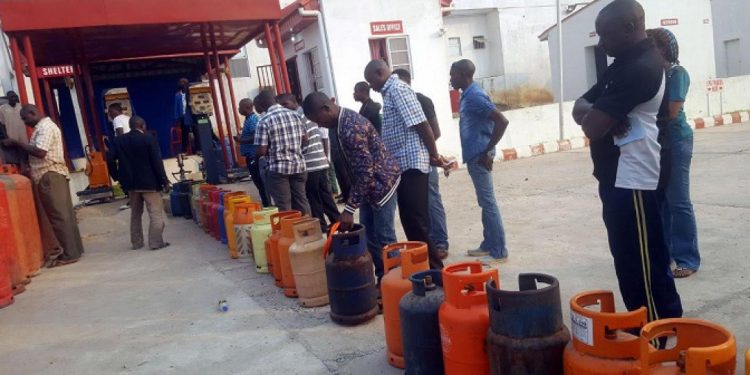Cooking gas prices in Nigeria are expected to ease in the coming weeks following assurances from the Nigerian National Petroleum Company Limited (NNPC) that the recent surge was caused by temporary supply disruptions during the Petroleum and Natural Gas Senior Staff Association of Nigeria (PENGASSAN) strike.
The Group Chief Executive of NNPC, Bayo Ojulari, explained after a meeting with President Bola Tinubu on Sunday that the price hike was largely “artificial” and driven by delays in loading and distribution during the industrial action. “The increase you saw was relatively artificial because for the period of the strike, movements and loading were delayed by about two, three days. And because of that, you see that impact. As things return back to normal, it takes some time for distribution to be fully restored,” he said.
The strike, which was launched over the dismissal of Nigerian workers at the Dangote Refinery, disrupted operations across the sector for several days before being suspended on October 1 following federal government intervention. Ojulari noted that while the disruption was temporary, some retailers exploited the shortfall to push up prices. “As you know, in Nigeria, people take opportunities. With that delay, some of the people who had existing resources and reserves had to put up the price,” he added.
He expressed confidence that as operations stabilise and supply chains recover, prices will gradually return to pre-strike levels. The Dangote Group’s decision to redeploy affected staff and resume operations has already begun easing supply bottlenecks, a development expected to reflect in cooking gas prices soon.
The NNPC’s assurance comes as many households continue to grapple with higher cooking gas costs, which have remained elevated even after the suspension of the strike. The company said normal distribution activities are resuming nationwide, a move it expects will restore market balance and bring relief to consumers.










